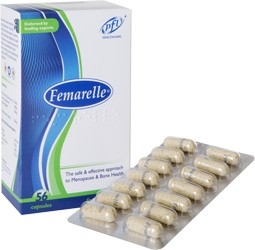‘Soft’ claims are powerful communication tools – but lose out against negative reports

While it is a legal requirement for all health claims made on packaging in Europe to be scientifically founded and backed by approved by the European Food Safety Authority (EFSA), many have suggested that the phrasing of such claims on pack are confusing or “unappealing and cumbersome to communicate to consumers.”
Indeed, it has been long suggested that consumers respond more favourably to non-scientifically phrased ‘soft’ health information.
Now, researchers writing in Food Quality and Preference have explored how health claims presented using this scientific yet often cumbersome phrasing impacts consumers’ health inferences and attitudes towards a product when compared to a more easy to digest ‘soft’ claim.
Led by Jessica Aschemann-Witzel from Aarhus University in Denmark, the team reveal that ‘soft’ claims and information on foods or supplements appear to be more effective in creating a positive perception of a product in terms of health inference and attitude compared to scientifically phrased frames.
“For food and supplement producers and marketers, this suggests that product descriptions referring to naturalness and tradition might be preferable and more effective for marketing goals, while scientific health information does not appear worthwhile in communication,” said the team.
However, the team also noted that when faced with contradictory or negative information on a product consumers – particularly in the USA - reduce their favourable attitude towards the product to a lesser extent in the presence of scientific information.
“Scientifically phrased information frames appear to partly ‘immunise’ against the decreasing effect of new and contradictory information on favourable attitudes,” said the team.
“Scientifically-supported nutrition and health claims might help consumers to form lasting attitudes that withstand diverse and contradictory information in an environment of information overload confronting them in the media landscape,” they added.
Resveratrol study
The findings come from a study in which Aschemann-Witzel and her colleagues showed different versions of mock resveratrol food supplement descriptions – using both soft and more scientifically framed claims - to groups of consumers Denmark and the USA – before being asked to offer up their perceptions on the health inferences and general attitude to the product.
The consumer groups were then shown mock-up media reports contradicting the earlier information and asked to repeat their assessment of health inferences and their attitude.
“This was done to assess how robust consumers’ health inferences and attitudes are in an environment of contradictory information,” explained the team.
Results showed that in Denmark the soft framing referring to naturalness of ingredients or a traditional setting positively influenced both health inferences and attitude towards the food product.
However, such ‘soft’ information was not seen to be favourable influence on product perception in the US – where scientifically phrased information seemed to be more.
“Furthermore, our results show that among US respondents the loss in favourable attitude after reading the contradictory information is smaller in the presence of the scientifically framed health information,” said the team.
Indeed, they suggested that the scientific frame ‘protects’ against losses of favourable attitudes in a more robust way than softer messaging does.
Regulation implication?
“From a public policy perspective, the powerful effects of soft health-related information raise concerns about their regulation and the challenge of scrutinising such information for accuracy and impact on consumer perception,” wrote the authors.
Indeed, they suggested that given the relatively weak impact of scientific claims versus soft information frames – concerns could be raised over the current regulatory framework – “given current emphasis on regulation of scientifically-based nutrition and health claims.”
“It may be important to direct special efforts to ensure that the more powerful soft information frames do not create misleading health perceptions,” they said.
Source: Food Quality and Preference
Volume 42, June 2015, Pages 90–99, doi: 10.1016/j.foodqual.2015.01.008
“Influence of ‘soft’ versus ‘scientific’ health information framing and contradictory information on consumers’ health inferences and attitudes towards a food supplement”
Authors: Jessica Aschemann-Witzel, Klaus G. Grunert






